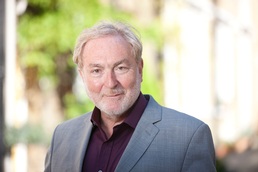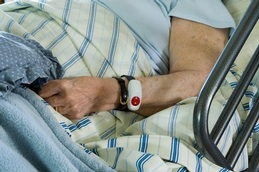Should local authorities ignore anonymous whistleblowers?
14-May-13
Paul Ridout, Ridout Solicitors

Eileen Chubb, former whistleblower and founder of Compassion in Care
To view the results of the poll, you need to vote!
YES
Paul Ridout, a lawyer specialising in health and social care issues, would like to see local authorities ignore anonymous allegations about care home abuse as he believes anonymous whistleblowers are motivated by malice and are “just stirring the dirt”.
He would like there to be more of a screening process where allegations are properly looked at to see if they should be taken further. “I don’t think local authorities should consider anonymous allegations as they are just stirring the dirt. I think that if they had proper concerns they wouldn’t be anonymous.
“Twenty years ago, whistle blowers were seen as nasty little snitches, now they are regarded as public heroes. I think we need to look at the trend for unsubstantiated allegations and we also need to look more closely at the definition of what abuse is.
“It doesn’t help that the media loves sensation and most local authorities are very sensitive to any accusation that they have not performed their duties properly.”
He believes “the media feeding frenzy on abuse cases” has led to a rise in care home abuse allegations “as people think they have the right to make complaints now without any substance”. He claims that when allegations of abuse are made, local authorities generally side with the person making the allegation. “A lot of people in local authorities are very negative towards private capital funded care homes. They seem to regard them as the enemy.”
“Unfortunately”, he says, “it is very easy to blame the private provider and not look at what has actually happened.”
NO
Some people make anonymous allegations as relatives can worry that care home staff may take it out on their loved ones if they make an allegation. While staff fear they may lose their job.
Eileen Chubb, who lost her job as a carer in Bromley after whistleblowing about the abuse of elderly residents, believes this fear is fully justified, which is why many prefer to stay anonymous.
She claims she has been blacklisted by every care home in the area and now works as a cleaner, because she spoke out about the abuse.
She said: “I believe that silence allows abuse to take place, those in a position to speak out are bullied and intimidated as a result or are just too frightened to say anything. I am a former whistleblower who reported abuse and I know how hard it is to do the right thing in a care system that values silence so highly.
“As a former care worker who saw vulnerable elderly people abused and tortured and blew the whistle along with six other brave co-workers. The abuse was subsequently upheld but we were not protected by the law and lost our jobs.
“I founded Compassion in Care as a result of what I experienced. I believe abuse happens because of Complacency, Ignorance, Denial and Silence, most of all Silence. Every day I deal with carers who have spoken out and lost their jobs or who are too afraid to say anything. The law alleged to protect whistle-blowers, The Public Interest Disclosure Act (PIDA) has totally failed however it has been successful in protecting bankers’ bonuses and has been so widely misused that any genuine whistle-blower is viewed with suspicion.”
Ms Chubb is campaigning for a law to ‘protect those who speak out in defence of others and expose wrong by making it a criminal offence for an employer to fail to act on the warnings of a whistle-blower’.
Latest Debate News
 21-Jun-21
Should the Covid vaccine be mandatory for care home workers?
21-Jun-21
Should the Covid vaccine be mandatory for care home workers?
 09-May-17
Should residents be allowed to smoke in care homes?
09-May-17
Should residents be allowed to smoke in care homes?
 15-Sep-15
Should care workers call residents 'sweetie' and 'love'?
15-Sep-15
Should care workers call residents 'sweetie' and 'love'?
 23-Jul-15
Do you think the Care Cap should be delayed?
23-Jul-15
Do you think the Care Cap should be delayed?
 01-Oct-14
Should care homes have CCTV?
01-Oct-14
Should care homes have CCTV?